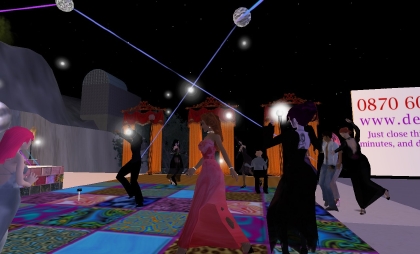MIND CHILDREN.
One last thing before the end.
What if a human being was not a necessary part of the system that enables a digital person to ‘live’? One futuristic possibility is ‘whole brain emulation’ or ‘mind uploading’. This is the idea that we will one day be able to scan a living brain in sufficient detail to capture the processes that give rise to memories, personal identity, self, consciousness. Those processes are then reverse engineered into a mathematical model running on a suitable neural computer. In simplistic terms, a person’s mind is copied. But what identity should we attribute to the copy?
Traditionally there are two schools of thought. One insists that the copy is a continuation of the same self. ‘I’ have been transferred from one brain/body to another. The other school of thought insists ‘the copy is not you’. In other words, mind uploading creates a different person. Both schools of thought have published long tracts defending their point of view, but I will not go into details here.
Instead, I will suggest a third way that exists between these two extremes. Imagine we copy the mind of Wagner James Au. Is the copy really him? Or really somebody else? Or, is it an identity that is sort of Wagner James Au and sort of somebody else at the same time? It so happens that such an identity already exists: ‘Hamlet Au’. Recall, for instance, his occasional reference to Hamlet Au in the third person, as though he were a person in his own right. If you were to non-destructively scan Wagner’s mind and then the software emulation ‘woke up’ and said ‘I am Hamlet Au’, everyone, including Wagner, would probably be convinced that this was the truth. But if the upload said ‘I am Wagner James Au’, the original would probably be faced with all kinds of existential ‘he cannot be me because I am me’ kinds of questions.
Perhaps, then, the identities people project out onto online spaces, which are always ‘kind of me but at the same time kind of not me’ (even if the person claims to be 100% the same in RL or 100% different), will turn out to provide a comfortable solution to the ‘duplicates paradox’. Perhaps the promise of mind uploading is not immortality, but rather the creation of ‘mind children’, an ‘other’ that shares your personal history, skills, and everything that makes you ‘you’, and who will take your life experiences and develop them further, diverging from your ’self’ and becoming more of a person in their own right as time goes by.
CONCLUSION.
It seems likely that this will be a situation we will not face for a long time to come, if ever. Perhaps it is just not possible to upload a mind. Perhaps no technology, no matter how sophisticated, is capable of consciousness. Perhaps, even if it is possible in principle, achieving this goal will turn out to be too complex for humans to solve? But, whatever the case may be, Vernor Vinge’s prophetic remark ‘the sense of self itself is in for rough times’ is already showing signs of coming true. We see it manifested in every concern that a claimed identity may be ‘fake’ and in the ways roleplaying and digital personhood thwart us in our quest for a quick and easy solution to the question ‘is that person who they claim to be’?




